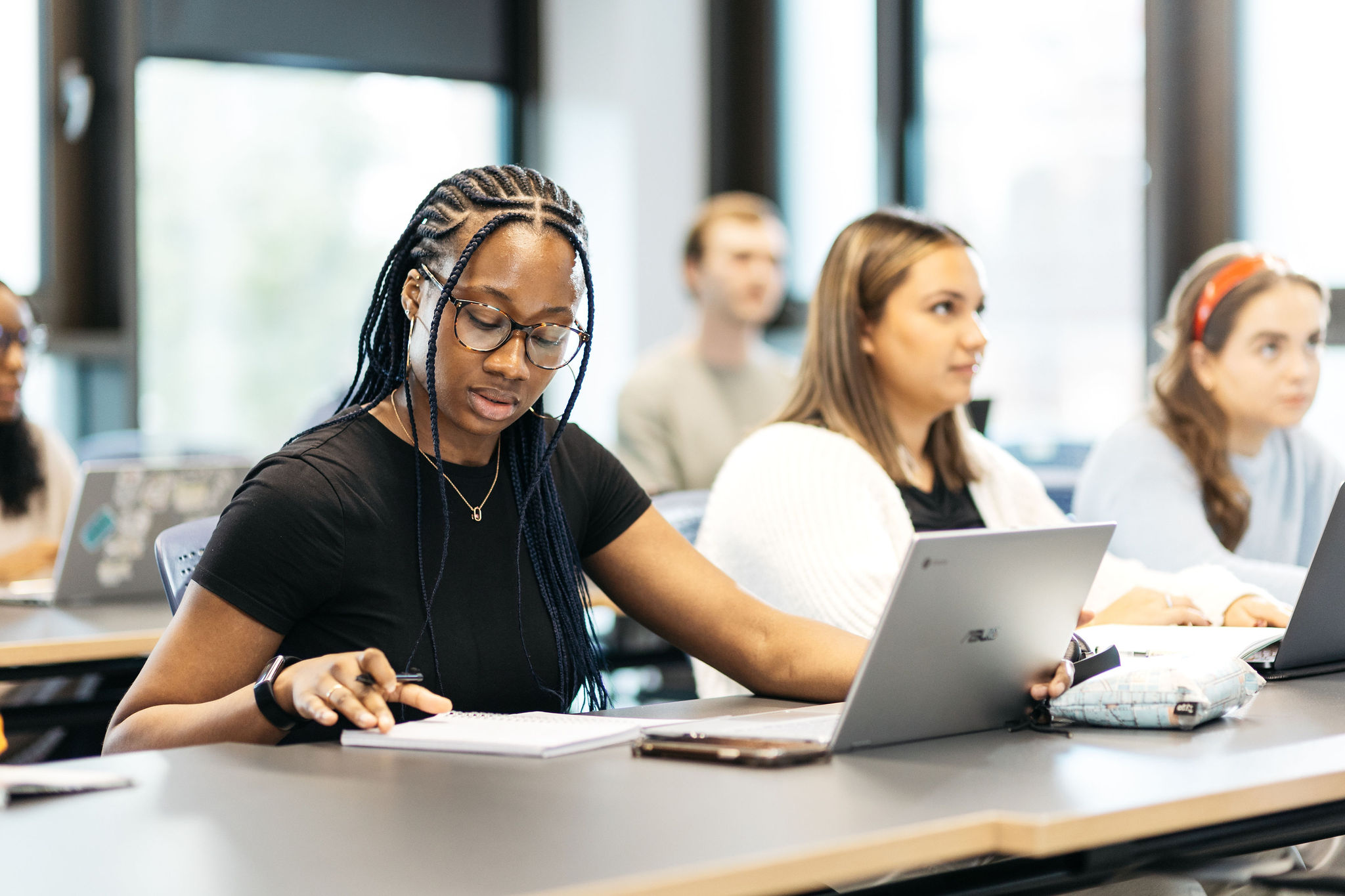
By Dr Kamilya Suleymenova & Dr Mary Dawood
Department of Economics, Birmingham Business School
The first open-to-general-public GenAI tool was launched in November 2022 and headlines ranged from exceptionally optimistic to dramatically alarmist. The ability to generate text (as well as code, and later images, audio, and video) was immediately spotted by those involved in education: students and teachers. Can students use these new tools to cheat? Should GenAI be banned from schools and universities, or embraced as an essential new skill, like the use of a personal computer?
On the surface it may seem that these questions should be answered by a simple update of educational research and practice. However, the raging debate and deeply polarised opinions between academic colleagues across the sector proved that more fundamental issues are at stake. The expected changes (as presented in Deloitte & McKinsey reports) in the work patterns are likely to influence the skills that graduates will be required to possess, at least in some sectors. Does this mean that we should teach prompt engineering at universities, and include GenAI tools in all of our teaching and assessment? The emerging consensus provides a more balanced answer and is in line with the Russel Group statement: students should have the opportunity to engage with and training in GenAI skills. However, this cannot be seen as embracing the use of GenAI with abandonment: in University of Birmingham’s strategy there are significant caveats as to an ethical and responsible use of GenAI.
The scale and the speed of change (illustrated by ChatGPT’s record for fastest-growing user base) is a challenge, as any rapid and substantial change in workplace would be. This coincided with an already shifting job market, in the UK and worldwide. Careers become less fixed and move away from the traditional long term contractual relationship between employer and employee, requiring increasing adaptability from workers. This is often referred to as the “gig economy”, with both benefits (flexibility) and drawbacks (lack of security) for workers. Without a new social framework adapted for the gig economy, this has the potential to increase inequality both within and between countries.
Thus, several new trends come together at once creating both uncertainty and opportunity. As AI and especially GenAI have the potential to automate more and more tasks we are likely to see a significant increase in productivity for early adopters. This will be particularly true for where automation is introduced in a new way or a new process, such that it hasn’t been considered before, giving the innovator a significant first-mover advantage. In other words, as AI and GenAI lead to more automation and scalability, this gives more power to smaller entities with exceptional ideas. But what does this mean for our graduates and individual workers in general?
Understanding how to use GenAI effectively and critically is likely to be an essential requirement for many future job roles. This understanding is also useful for those currently in employment to avoid “being left behind”. Many at the University of Birmingham are working on (i) how to adapt our programmes and pedagogies and (ii) thinking about the future workplace. From Dr Tarsem Cooner’s videos on the use of GenAI in academic practice and our work developing assessments focused on critical thinking and evaluation of outputs to Dr Ceren Ozgen’s work on automation across industries and Professor Siddhartha Bandyopadhyay’s book “Work 3.0”, we are adapting to the new environment to provide our students with the most up-to-date knowledge and skills.
GenAI is still a relatively new tool and continues to grow at speed. Concerns around the environmental footprint, the impact on mental health, and potential fundamental shifts in our understanding of creativity and authorship will become clearer with time and further studies. So, while we are poised to embed GenAI in our jobs (and life) to improve our productivity, we need to watch out for unintended consequences and evaluate the impact of changes. Cautious optimism and readiness to adopt and adapt would be de rigueur.
If you’re interested in learning more, the University of Birmingham’s Public and Cultural Engagement team has a series of events running at The Exchange in Birmingham city centre as part of the AI Futures programme. The exhibitions and events explore vital questions through the lens of University research: Can AI create things or is it just copying? Should we be scared? And what will the future look like? Explore how AI affects your work, home, and health and share your thoughts on how AI is shaping our world.
- Find out more about Dr Kamilya Suleymenova
- Find out more about Dr Mary Dawood
- Back to Social Sciences Birmingham
The views and opinions expressed in this article are those of the author and do not necessarily reflect the official policy or position of the University of Birmingham.
